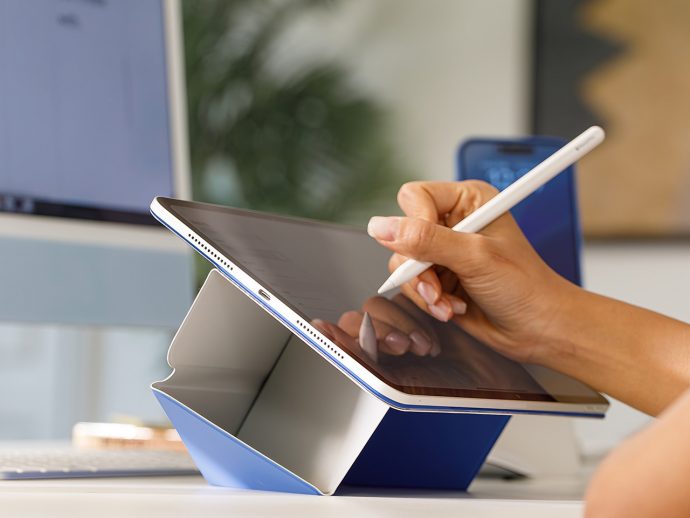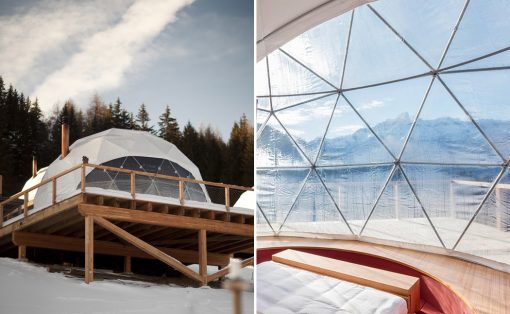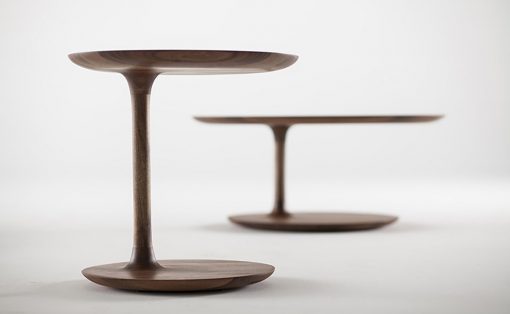Hollywood has romanticized the idea of living in space or on other planets, but our current technologies have yet to catch up to the future painted by science fiction. Never mind the risks of blasting off into space, living on a space station can be extremely challenging, especially in the absence of gravity. Zero-G, as it is often called, can be fun once in a while and in short bursts, but having to constantly live in that environment turns activities we consider normal and mundane into an exercise in patience. The simple act of drinking, for example, requires sipping from a straw all the time, not exactly the most comfortable method for enjoying precious Earth liquids in space. That’s the problem that this space cup solves, but it accomplishes this impressive feat by taking on a shape that is almost literally out of this world.
Designer: Donald Pettit, Mark Weislogel
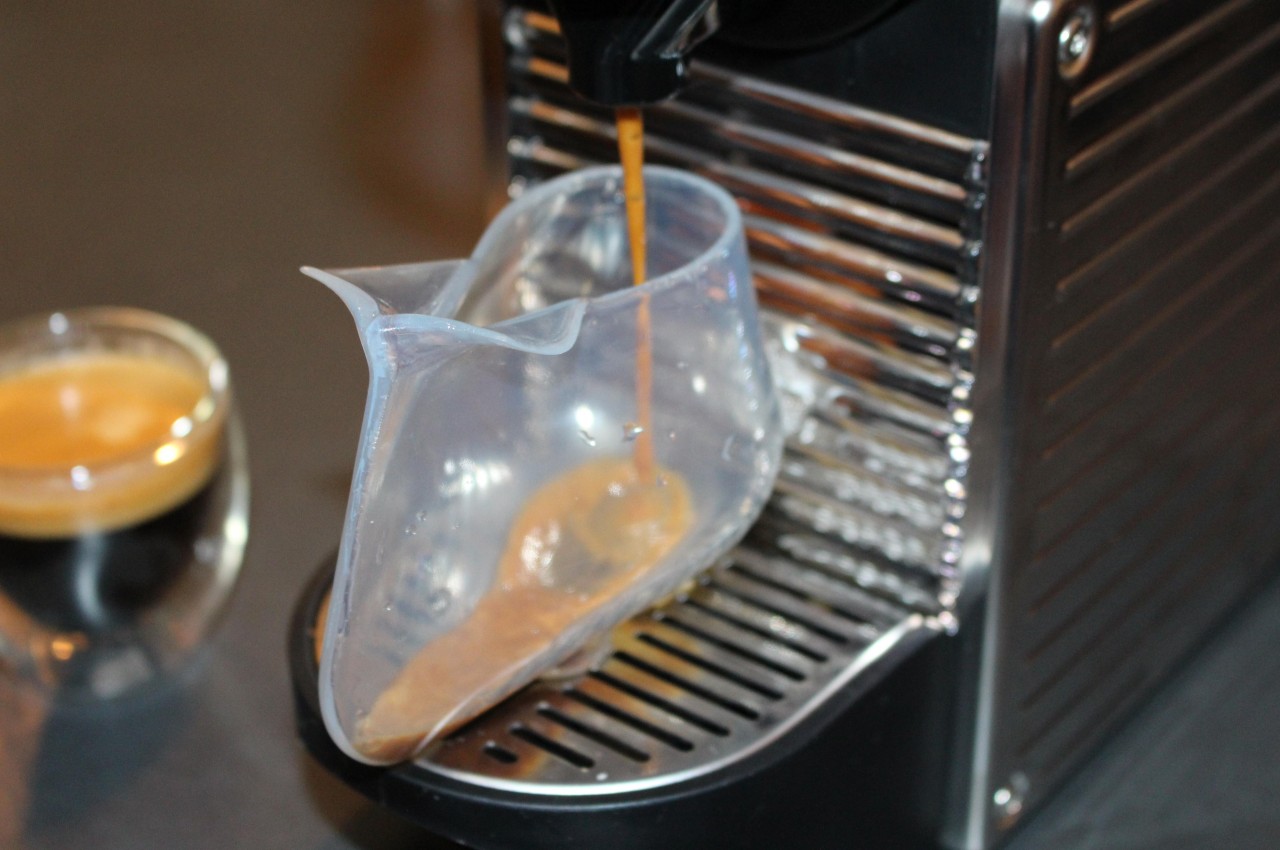
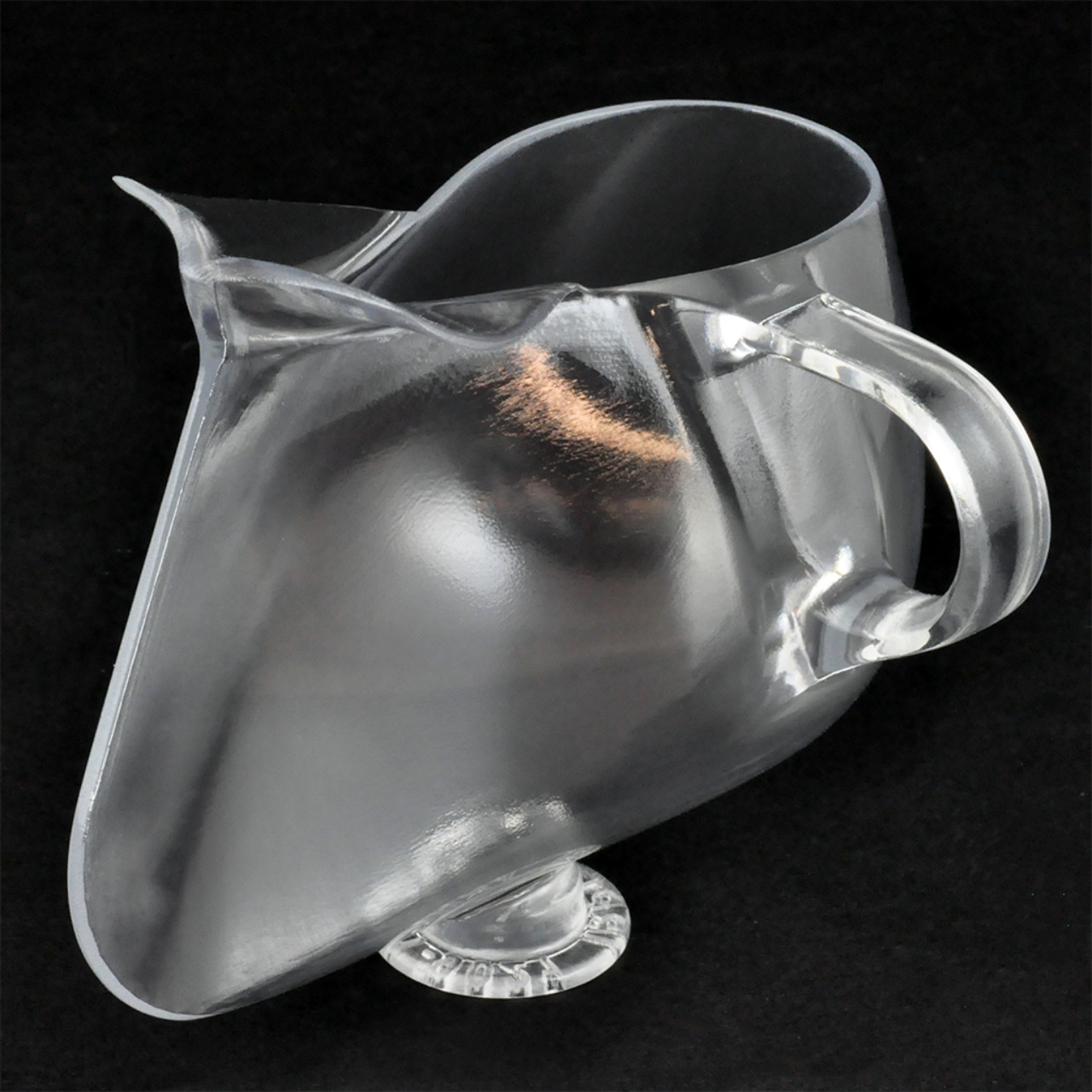
It’s only logical that liquids wouldn’t stay still inside a cup without the power of gravity, which is why drinks in space are taken from pouches with straws attached to them. It’s a simple and practical solution that makes drinking feel more like a mechanical act of survival than something that is enjoyed and treasured like those on Earth. NASA researcher Mark Weislogel and NASA astronaut Donald Pettit worked together, the former on Earth, the other on the International Space Station, to come up with a design that brings back the comforting experience of drinking normally from a cup.

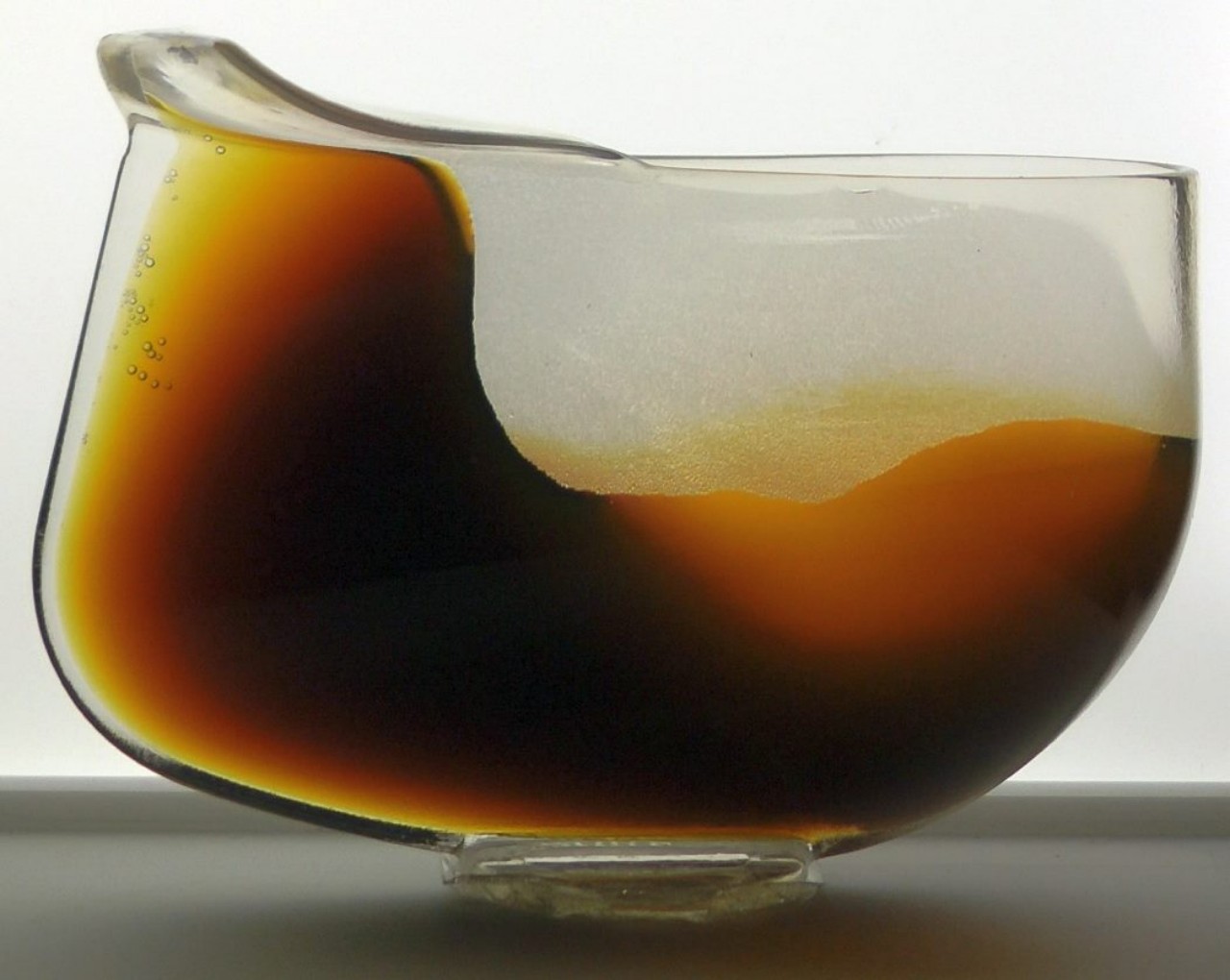
The secret behind this “zero gravity coffee cup” is twofold. One is the special design where the cup has sharp crevices where two edges meet. The other is the way liquid behaves when placed in such a receptacle in zero gravity. The liquid is naturally drawn to those narrow spaces following the principle of capillary channel flow and, as if by magic, actually sticks to those edges without spilling out.
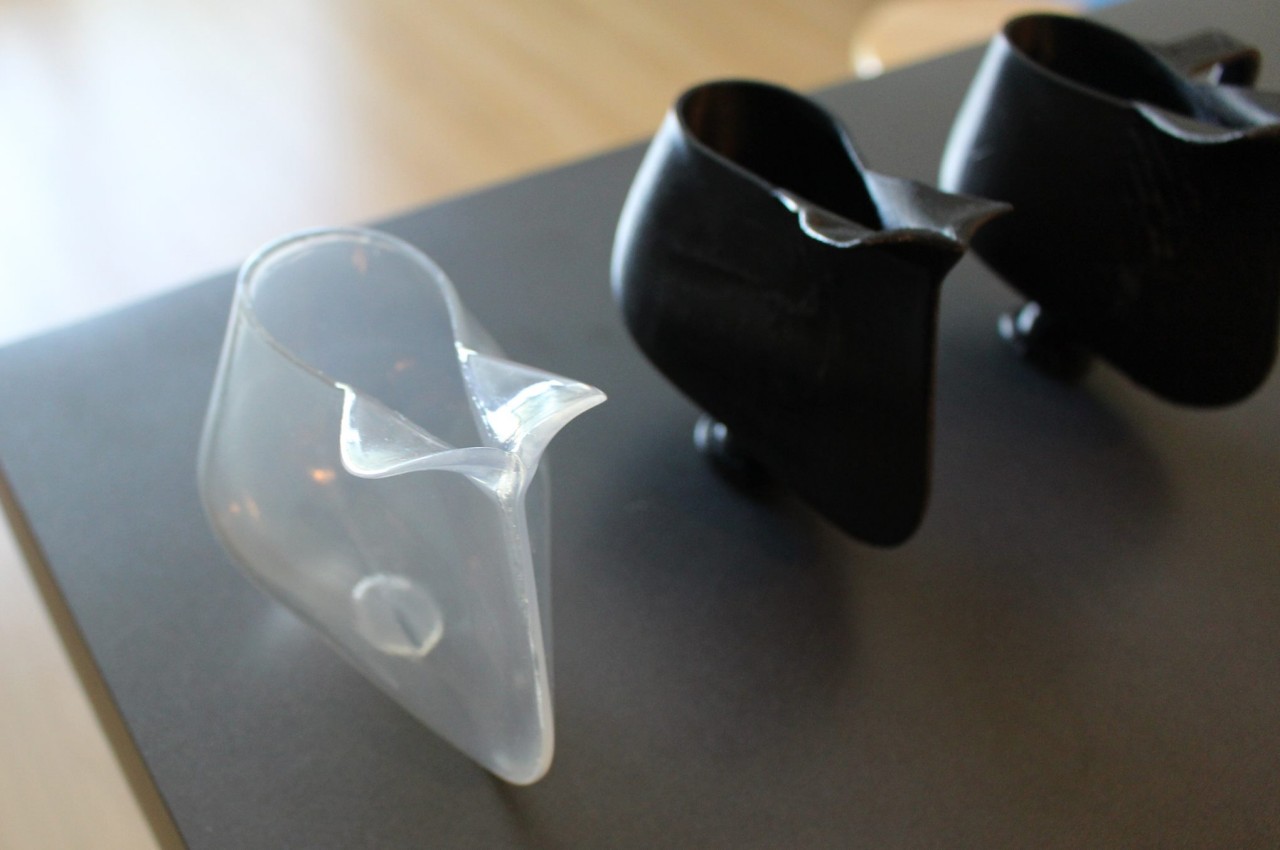
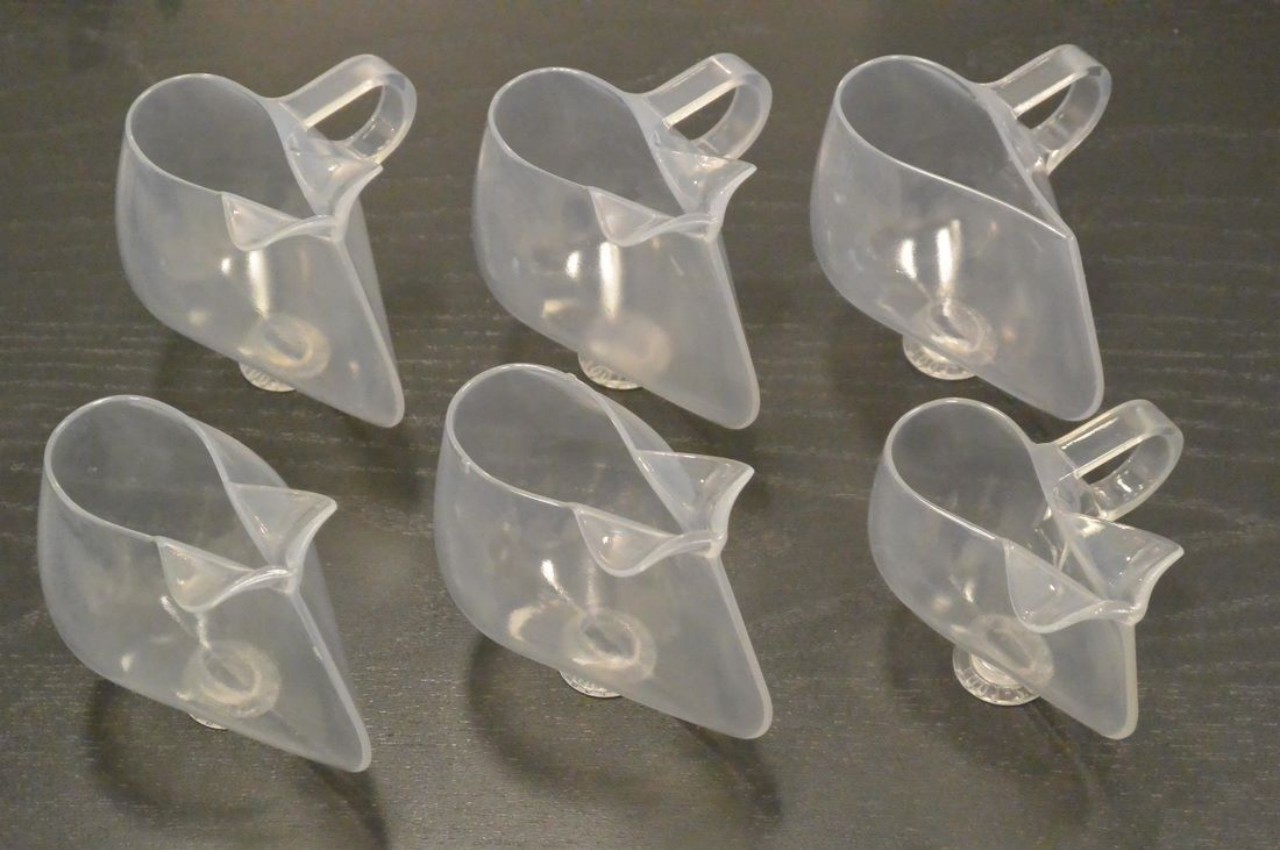
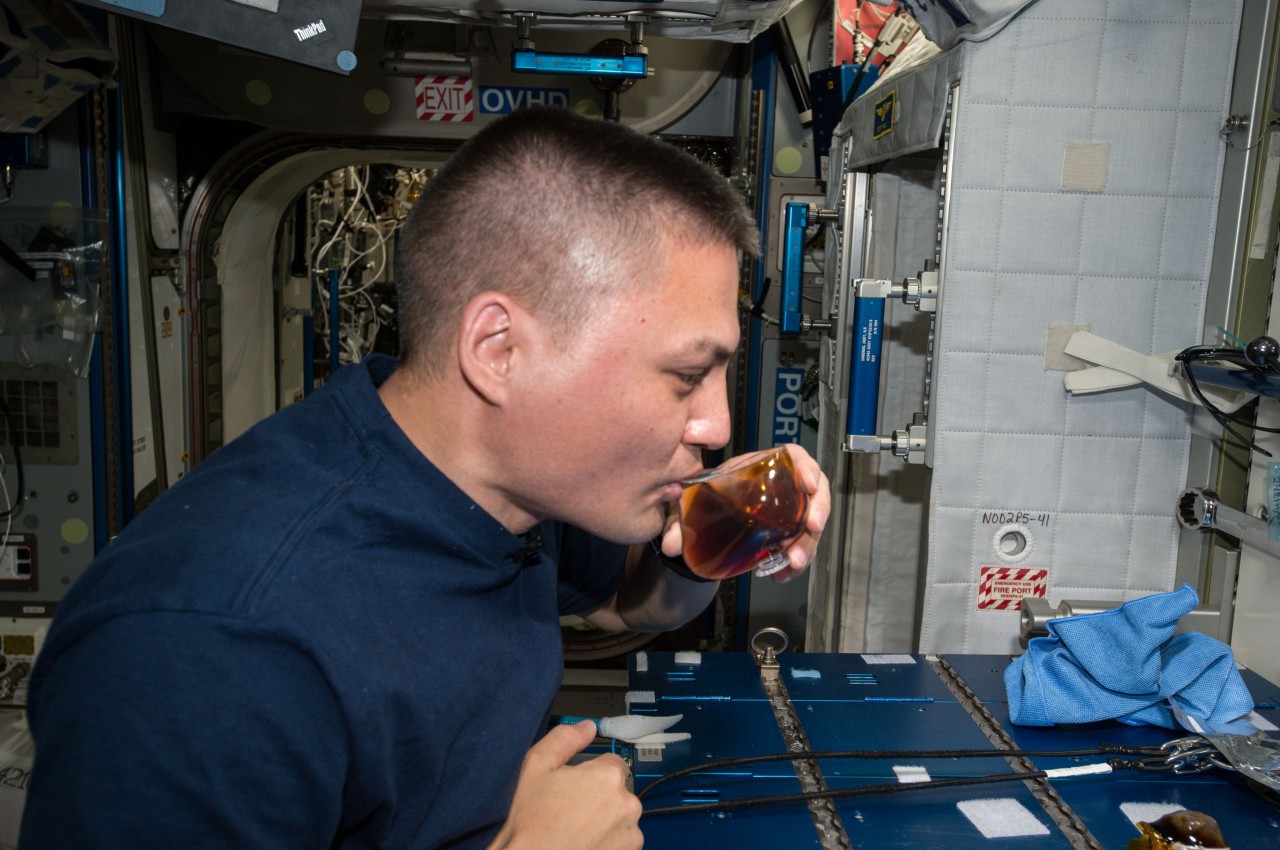
Owning the title of being the first cup that was actually designed in space, this zero-gravity drinkware’s first form was actually just a sheet of Mylar taped together at the edges to form a teardrop-shaped container. Of course, such a design hardly counts as a comfortable cup to drink from, so a more refined 3D printed food-grade plastic cup was made on Earth. Another model, this time made from ceramic, was later developed and became the first patented product invented outside of our planet.
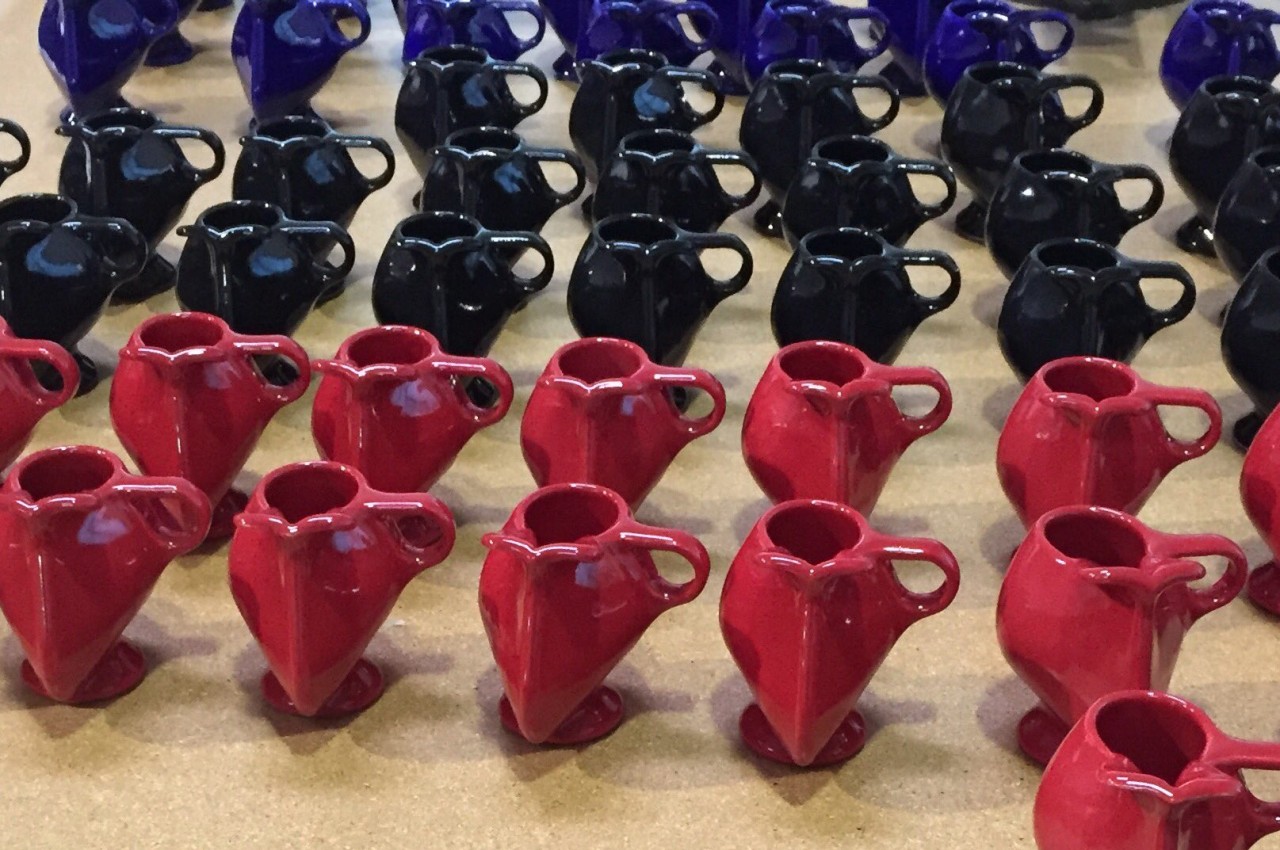
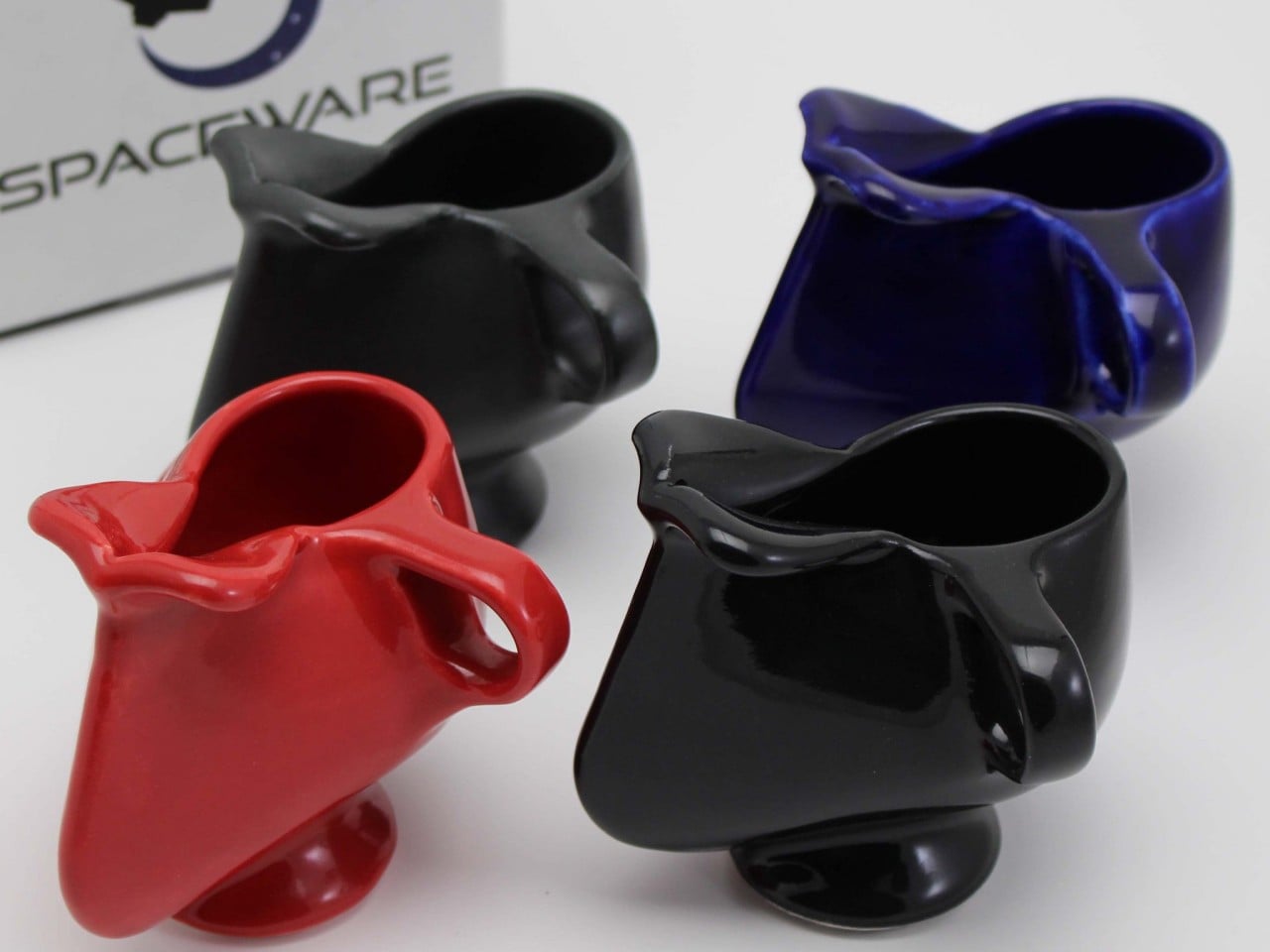
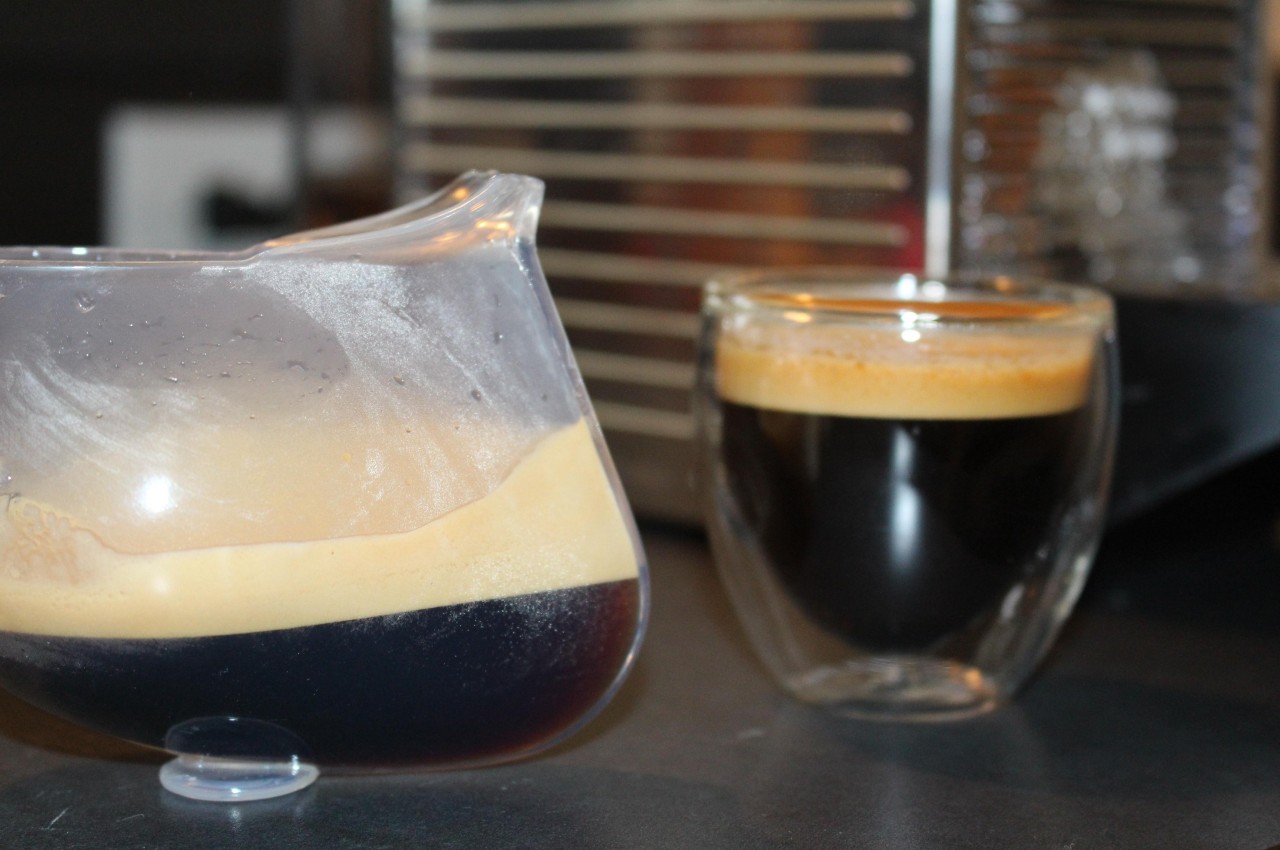
The space cup’s unusual shape has raised a few eyebrows, and while it’s now available for sale on Earth from some sources, it doesn’t have the same magical capabilities demonstrated in zero-gravity space. Its alien design, however, does show how outside-the-box thinking will be necessary to have more “normal” experiences in space, and we have to expect that the first generation of what we consider to be ordinary products will take on sometimes unusual forms just so they can function in the same way.



